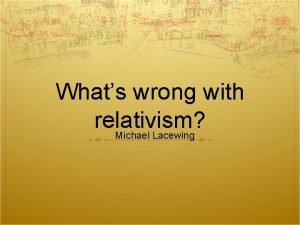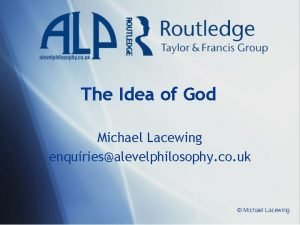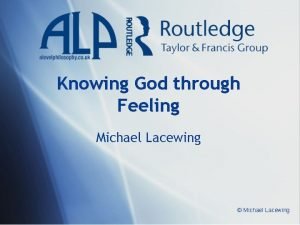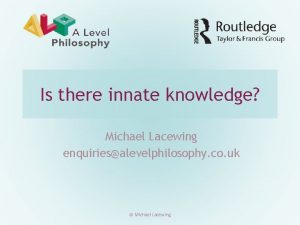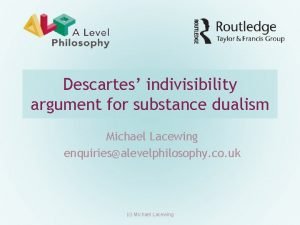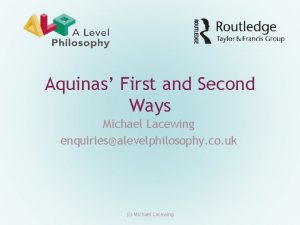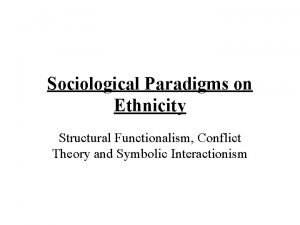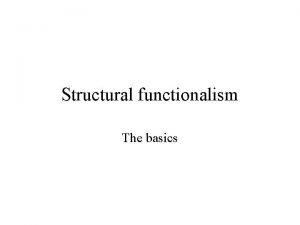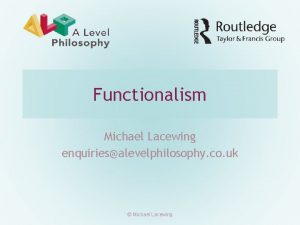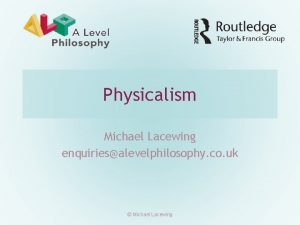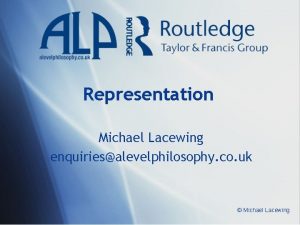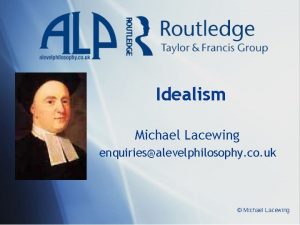Functionalism and qualia Michael Lacewing enquiriesalevelphilosophy co uk











- Slides: 11

Functionalism and qualia Michael Lacewing enquiries@alevelphilosophy. co. uk © Michael Lacewing

Functionalism • Mental states and properties are ‘functional’ states and properties • Each mental state is a disposition to behave in particular ways and have certain other mental states, given certain inputs from the senses and certain other mental states – Different mental states differ in their typical inputs and outputs • The complete description of the mental state’s outputs, for each possible set of inputs, is the description of its function – This can be understood causally or computationally © Michael Lacewing

Phenomenal properties • Phenomenal consciousness - ‘what it is like’ • Almost everyone agrees there are phenomenal properties – But they disagree on what they are © Michael Lacewing

Qualia • Qualia are intrinsic, non-representational properties of experience – Intrinsic: not relational • Would the smell of coffee be the same smell if it wasn’t caused by coffee? – Representational properties: the mental state is ‘about’ the world • Relational, not intrinsic • Is this theory of phenomenal properties correct? © Michael Lacewing

Functionalism and qualia • If phenomenal properties are qualia, then they cannot be completely understood in terms of functions, because functions are relational properties, not intrinsic properties. • So if qualia exist, then functionalism cannot be true of phenomenal consciousness – There is more to pain than just what causes it and what it causes © Michael Lacewing

Inverted qualia • Is it possible that how grass looks to me is how ripe tomatoes look to you? – We are functionally the same (we both call grass ‘green’ and tomatoes ‘red’) – But our conscious experience is different • Churchland’s reply: there are fine-grained functional differences, so this isn’t a counterexample © Michael Lacewing

Churchland’s reply • ‘Inverted qualia’ isn’t proposed as an empirical hypothesis – Empirical hypotheses are tested against evidence – We have no evidence from neuroscience that identical brain function produces distinct conscious experiences – Untestable empirical hypotheses are bad science • So ‘inverted qualia’ claims that the inversion is ‘conceivable’ – Is it conceivable? Even if it is, is it possible? © Michael Lacewing

Churchland’s reply • The inversion is much too simple – Every colour we see has unique similarity relations to other colours (is the inverted ‘red’ similar to orange? ) • Response: inverted the whole spectrum – Reply: The colour sphere and its explanation © Michael Lacewing

Churchland’s reply • Response: invert the whole spectrum and change powers of discrimination – Reply: But this person now sees different colours than us • What is essential to the experience of colour? – Is it intrinsic, or is it a function of our physical constitution? – What’s the best explanation? © Michael Lacewing

Block’s ‘Chinese mind’ • The population of China replicates the functioning of your mind/brain (as described by a machine table) using radios – Some of these hook up to the nerves of a body • Is there a ‘Chinese mind’? – If they replicate my brain when I am in pain, then who is in pain? • Reply: not functionally identical, e. g. susceptible to different disruptions – Obj: susceptible - but this is irrelevant, e. g. if not disruption, then functional replication © Michael Lacewing

A physicalist response • Functionalism can’t account for phenomenal properties on its own – As Churchland argues, these are the result of functional properties + the physical properties of the system – E. g. colour experience, pain depends on our physiology • So a physical, functional duplicate will have the same mental states © Michael Lacewing
